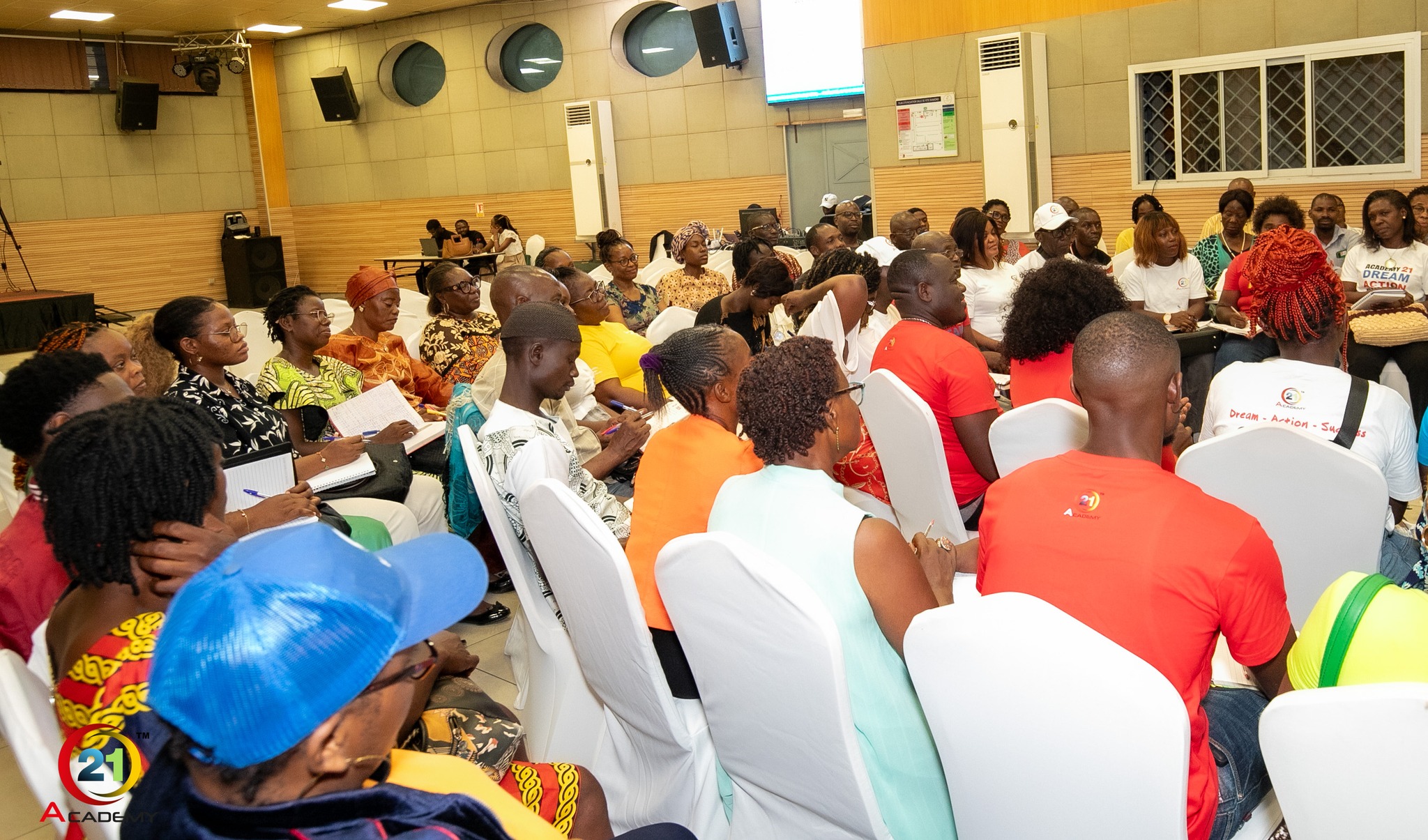Many times, when people face failure or difficulties, they look weakened and are disgusted by the will to continue or improve. Yet if they were smart enough, they'd be looking for the reasons, or at best the causes, of their failure. With a little hindsight, we've come to realize that many of the failures experienced by people around the world have nothing to do with intrinsic skills or know-how. The main cause of these failures is lack of personality and self-esteem. And yet it's true: if you do a poor job of presenting what you're good at, people will get the impression that you're doing it badly. But if you do a good job of presenting what you're good at, even if it's mediocre, people will get the impression that you're a professional. This paradox is obviously what governs the professional world in which we evolve, and it's called self-marketing. This was the theme of Dr. Raoul Ruben's presentation at this gigantic training session held at the Hôtel La Falaise in Bonanjo, Douala.
We often strive to develop managerial, technical and professional skills, but we lose sight of the essential: branding. How many times have we bought items instinctively because the presentation of said item on the mannequin was perfectly arranged?How many times have we fallen in love with someone because they look good?Examples like these are legion, and serve to demonstrate the importance of branding and perceived value.And that's what really constitutes the holy grail in business, the power of self-marketing.Having skills is one thing, but developing the marketing and strategies to sell those skills is quite another.It brings out the notions of self-esteem, self-confidence, personality, principles and values, for these are what color the life of every Man called upon to carry a futuristic vision.Without packaging, Chairman was clear in his communication, evoking the reasons why everyone should build self-marketing, and among these reasons here are the ones that caught the audience's attention.
1- PERSONAL COMFORT.
It goes without saying that one of the things that strengthens the spirit of daring is self-esteem.This strength is what emanates from the depths of each being, and is the result of deep self-knowledge, a mastery of what constitutes our strengths and weaknesses.When we are aware of the strength that resides within us, we feel a certain freedom and personal comfort.It gives us confidence and serenity in the face of life's unexpected events.
2- INSPIRE, IMPACT AND MANAGE.
The primary reason we're here on earth is to be an agent of change for ourselves, our families, our communities and, by extension, the whole world.And to become an agent of change is to be able to inspire and impact large numbers of people. But this impact is the consequence of the person we become through the process of building our own branding. Self-marketing is a whole discipline in itself, and one that needs to be approached with the utmost seriousness, because the survival of our businesses depends on it. Some people say that people can easily forget the good you do them, but just remember how they felt in your presence. Self-marketing is also a question of aura, and therefore an inner ability to influence others, to manage them without being able to coerce them.
3- BUILDING AN IDENTITY.
Beyond all the riches a person can possess, the greatest of all is his identity, what makes him a singular and above all atypical person.That's why you'll often hear people say of such and such a person that they have a great soul, that they have great mastery.For others, they're recognized by their figure, their haircut or their sarcastic mood.Whatever the case, everyone has a character trait that sets them apart from the rest, and can therefore be either a strength or a weakness. It's always important to make sure that this singular difference is seen in a positive light, to give you a certain credibility.Our identity is our DNA, and the aim of self-marketing is to consolidate these assets and turn them into instruments of revolution.Such was the summary of this rich seminar, from which we can be sure that those who were absent didn't just do themselves wrong, they did themselves a disservice.

